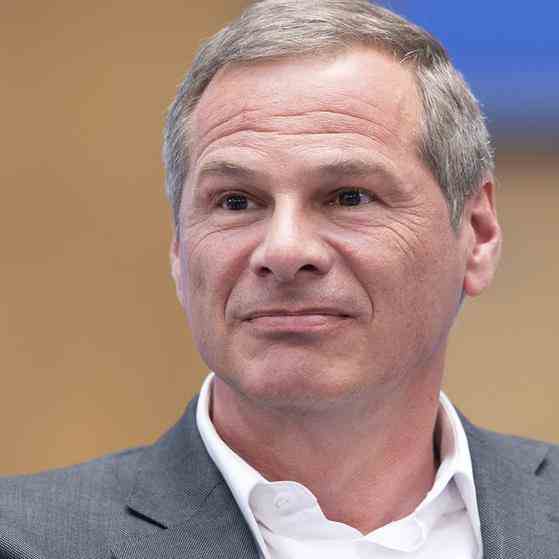Exclusive
Status: 03/03/2022 6:00 p.m
The physicist Wiesendanger accused the virologist Drosten of deliberately deceiving the public about the origin of the corona virus. According to information from NDR, WDR and SZ, Drosten is now taking legal action against it.
It is the first time in the corona pandemic that the well-known Berlin virologist Christian Drosten has taken legal action against a professor colleague. Drosten demands an omission from the Hamburg nanophysicist Roland Wiesendanger and the medium “Cicero”.
At the beginning of February, “Cicero” published an interview in which Wiesendanger accused Drosten of “deliberately deceiving” the public about the origin of the corona virus. In addition, according to Wiesendanger, Drosten is running a “conspiracy” and is misleading “the entire media world, all of politics.”
The point of contention is the “laboratory thesis”
The dispute goes far beyond scientific issues and even affects world politics: the core issue is whether the pandemic is a natural disaster – or whether it was caused by Chinese scientists manipulating viruses. In his statements, Wiesendanger fuels this so-called laboratory thesis.
The starting point of Wiesendanger’s allegations against Drosten is a conference call at a very early stage of the pandemic: On February 1, 2020, the doctor Jeremy Farrar, director of the influential health foundation “Wellcome Trust”, called Drosten in Berlin and told him that the Danish molecular biologist Kristian Andersen has indications that the corona virus may have a man-made genetic modification.
This is an outrageous suspicion, says Farrar, and a conference call must be held that same evening. Andersen was there, as was Anthony Fauci, the top corona advisor to the US government, and Drosten should also attend.
Drosten signs affidavit
Drosten signed an affidavit on Wednesday that also deals with this conference call. “The discussion led to the conclusion that the thesis could not be proven in any case,” explains Drosten in the brief, the possible justifications for such a laboratory origin were “scientifically picked apart in a collegial discussion”.
In his “Cicero” interview, Wiesendanger claimed that Andersen and other researchers “turned their minds 180 degrees” after the phone call with Drosten and Fauci. From that moment on, Drosten and others would have committed themselves to the “natural origin of the pandemic”.
As evidence, Wiesendanger uses a short statement by 27 virologists (including Drosten and Farrar), which was published in the specialist journal “Lancet” on February 18, 2020. If you read the statement, it becomes clear that the authors wanted to support those Chinese scientists who were trying to educate and contain the new virus on site. But in the short statement, the 27 also explain that they reject “conspiracy theories” that the corona virus has “an unnatural origin”.
Drosten demands omission in seven points
At that time, however, simply wiping the laboratory thesis off the table was surprisingly full-bodied. You just couldn’t know that. This criticism would therefore be understandable. But Wiesendanger goes far beyond that. For him, Drosten, Fauci, Farrar and the others had “deliberately deceived” the public. “What happened there is an absolute catastrophe,” the Hamburg professor claimed, “ultimately an attack on our democracy.” “For me, Mr. Drosten has lost all credibility as a scientist.”
He was used to criticism, Drosten said NDR, WDR and “Süddeutsche Zeitung”. But how Wiesendanger talks about him is “disrespectful”. Drosten is now asking his lawyers to omit seven points from Wiesendanger and “Cicero”. His lawyers argue that Wiesendanger’s statements “seriously call into question scientific seriousness and honesty”.
Ultimately, the question is: Where does a professor’s freedom of expression end – and where does defamation begin? “Cicero” publisher Alexander Marguier confirmed receipt of the letter from Drosten’s lawyer, but did not want to comment on the content. “We now have to examine it legally. I can’t say more about it at the moment.” Wiesendanger writes via SMS: “I don’t know anything about it and therefore can’t comment on it.”
“Slander has a rising curve”
You can read a lot of hate about Drosten on the internet. Alongside ex-Chancellor Angela Merkel and Health Minister Karl Lauterbach, he is considered to be primarily responsible for many severe restrictions during the pandemic, similar to his colleague Fauci in the USA. In the first two years of the pandemic, Drosten tried to shake off the abuse. The third year is different.
As early as January, he obtained an injunction against the newspaper “Welt” from the Hamburg district court. “The defamation has an upward curve,” said Drosten, “I will not put up with that.” For him, he says, defending himself against obvious slander is not just a personal question. Above all, constant attacks on scientists would now contribute to undermining trust in pandemic politics as well as in vaccinations.
Studies support natural origins
Only last weekend were two studies published that support Drosten’s early assumption that the corona virus originated naturally. One of those, a large US studyhas mapped every available early Corona case in Wuhan, China.
The authors, including Andersen cited above, whose theses prompted the conference call at the time, conclude that the wild animal market in Wuhan is “clearly” the place of origin of the pandemic. In fact, that is obvious, but a number of pieces of the puzzle are still missing. For example, it is still unclear which animal it was in which the change took place and whether there were intermediate hosts.
“I have no interest in directing the suspicion about the origin of the SARS-CoV-2 virus in a specific direction,” writes Drosten in his affidavit. She concludes with the sentence: “If there were any indications for the correctness of the laboratory thesis, I would emphatically support this in the scientific and public discussion.”


